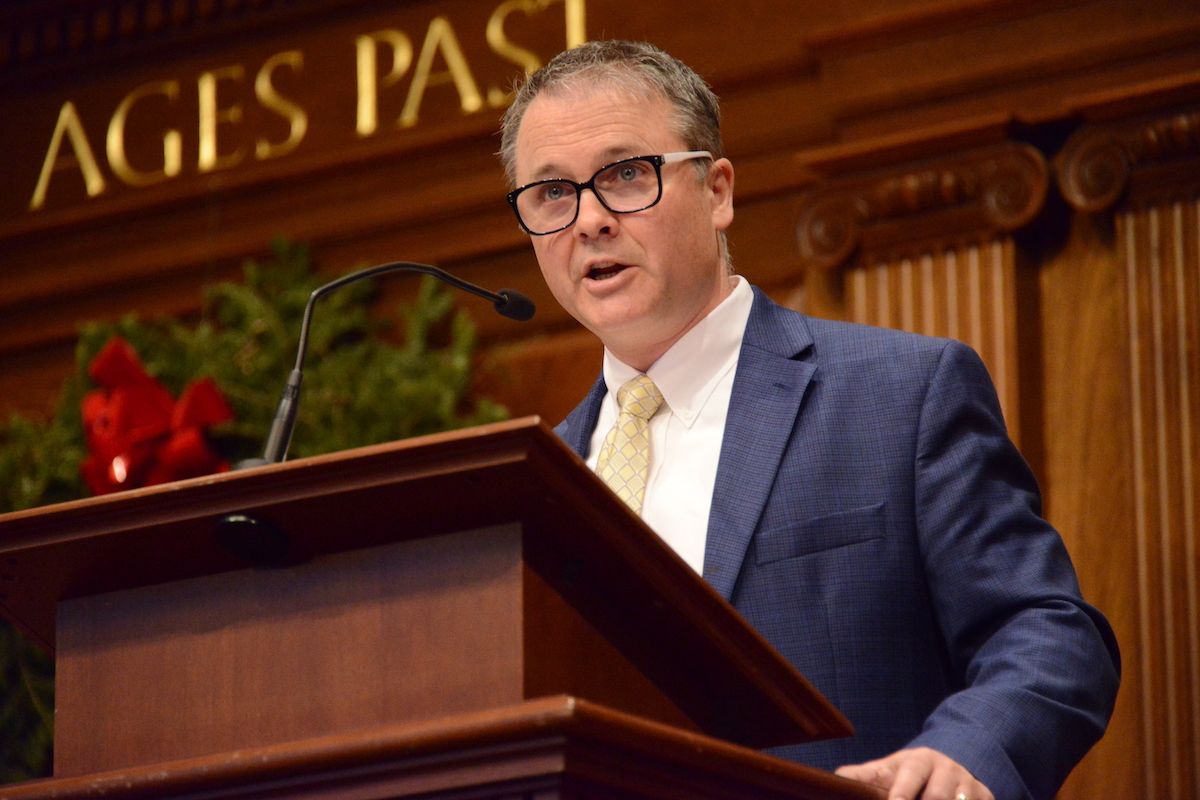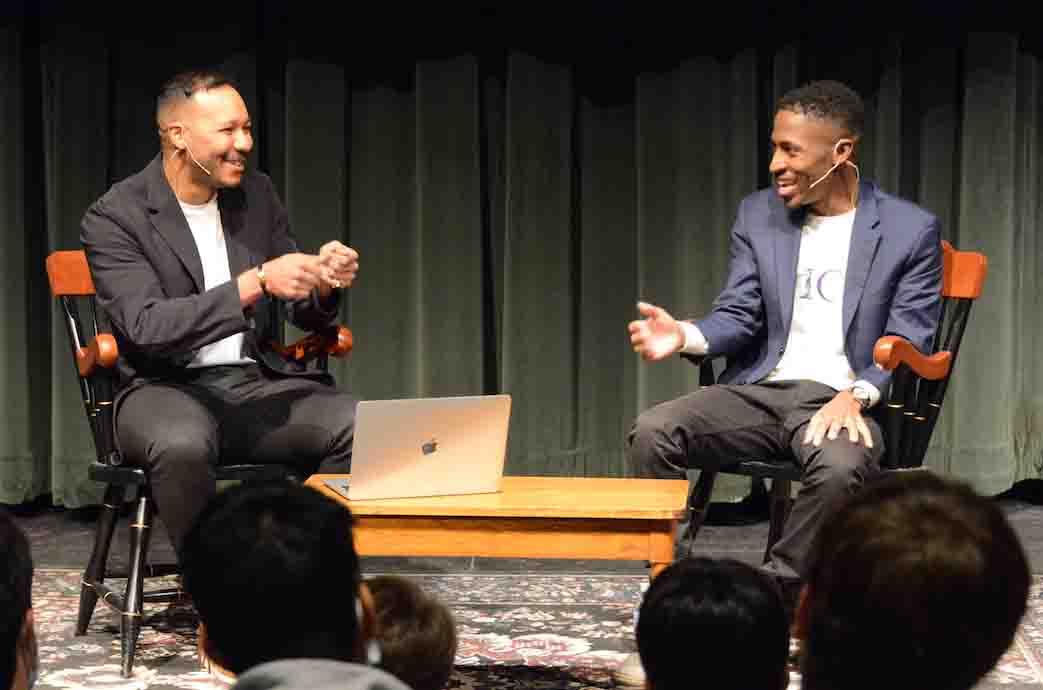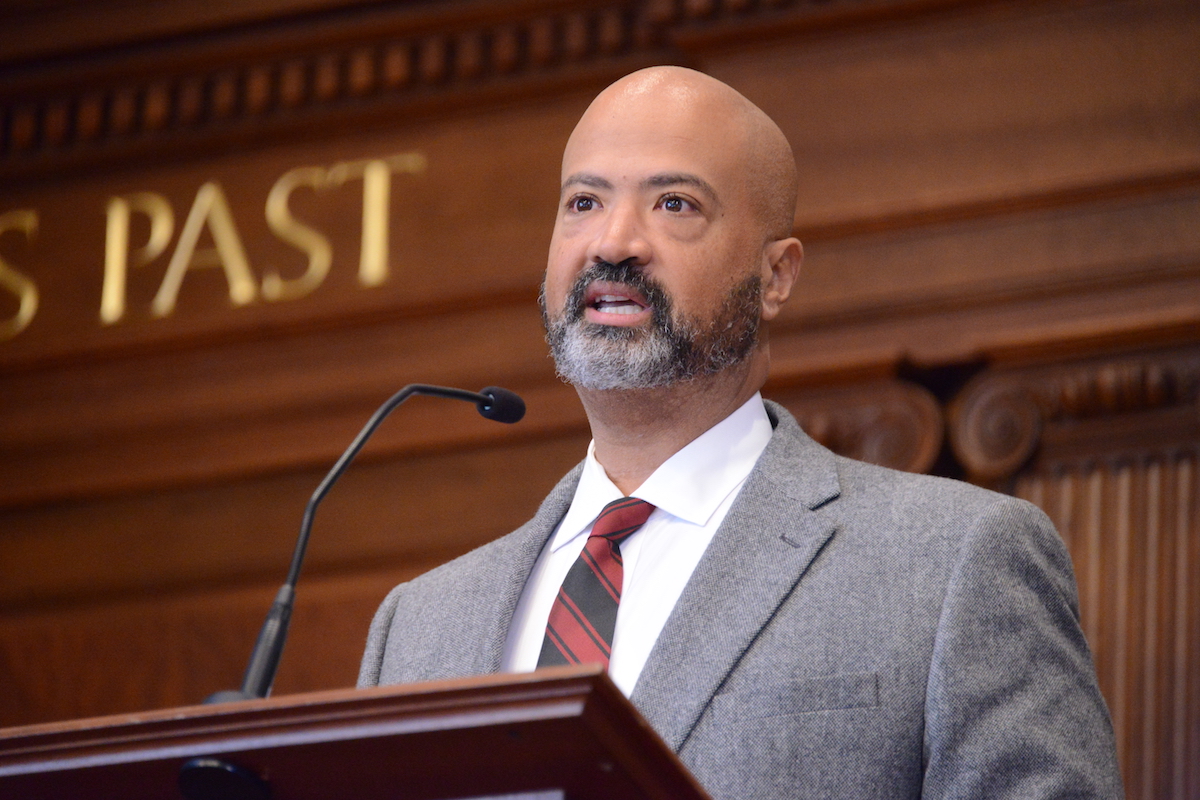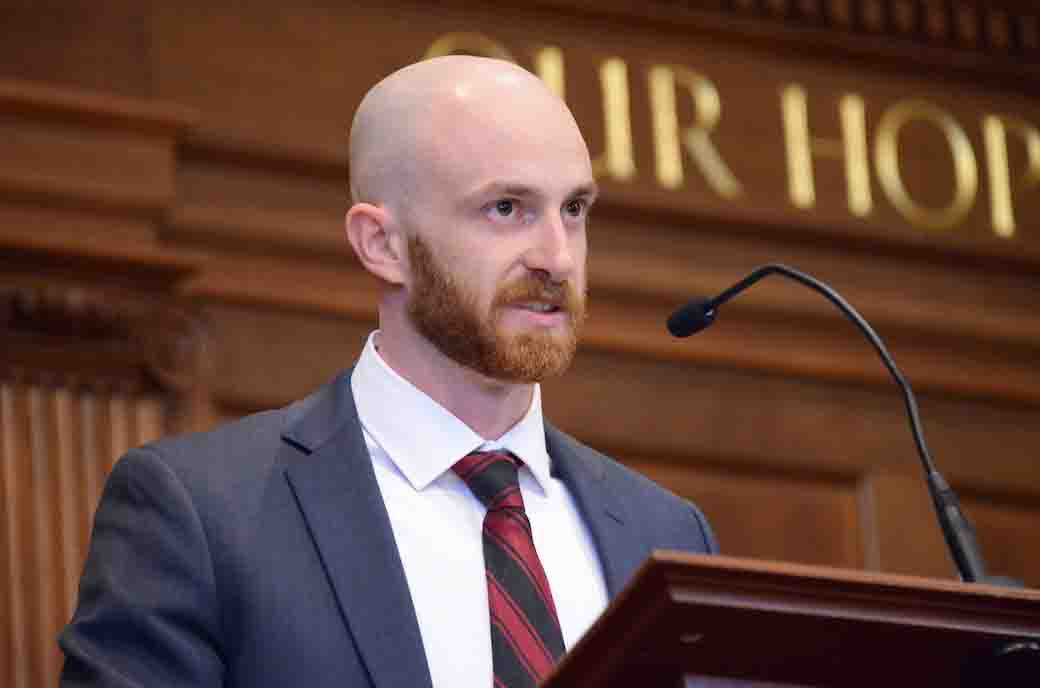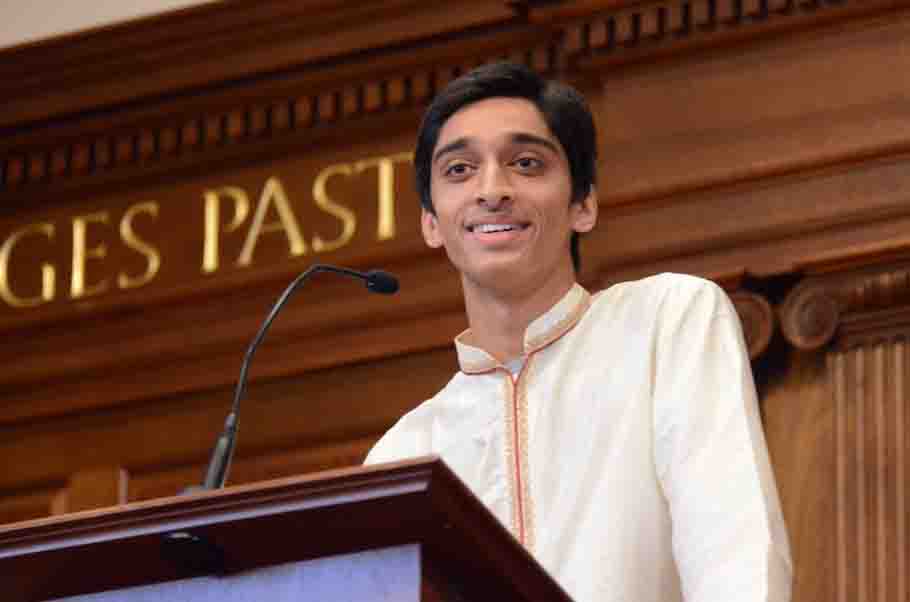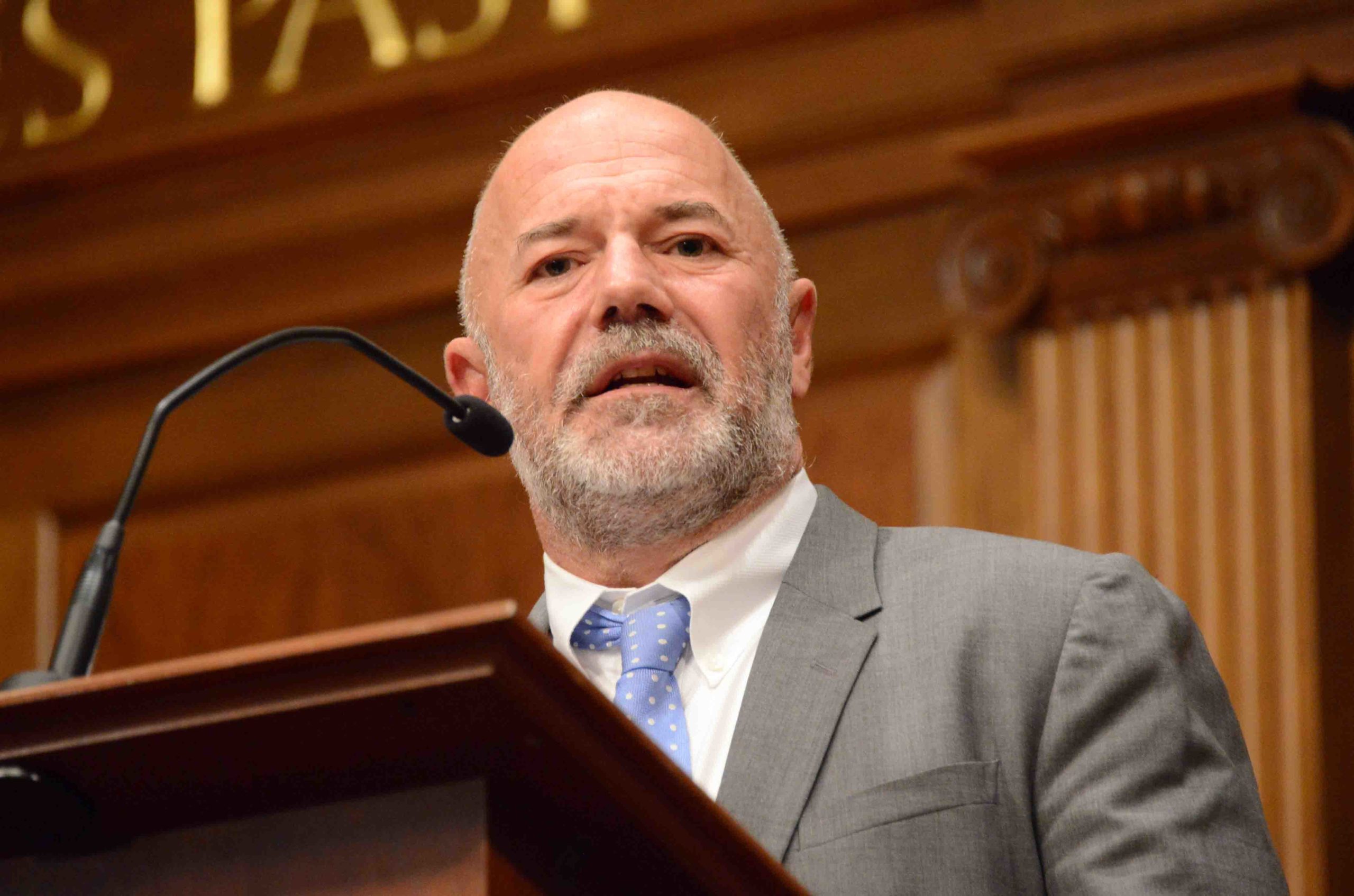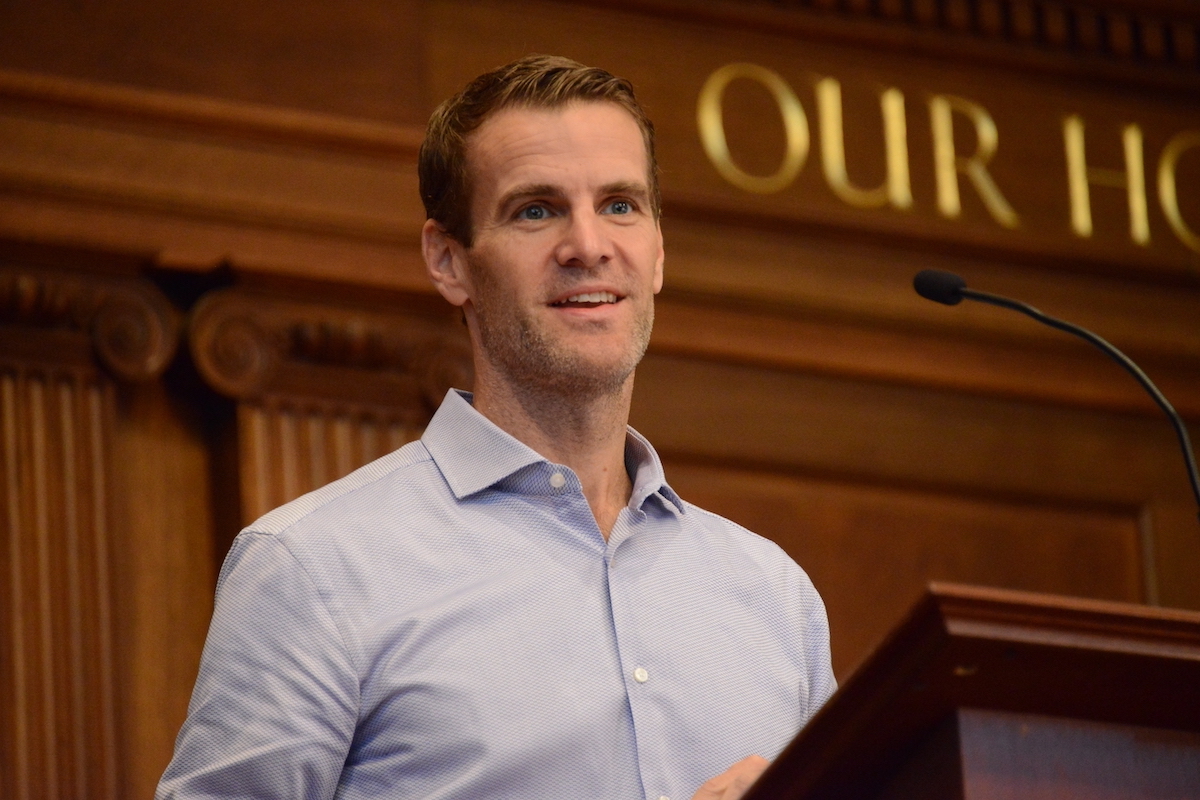On January 13, Roxbury Latin welcomed back Danny Morris, Class of 1986, who delivered a rousing, personal, and powerful address at the school’s annual Martin Luther King, Jr. Commemoration Hall. Danny serves as Director of National Programs for the I Have a Dream Foundation, an organization based in New York City and working to ensure that all children have the opportunity to pursue higher education and fulfill their potential. The foundation’s name is, of course, derived from Dr. King’s famous speech delivered during the March on Washington in 1963. In his role, Danny oversees the effective delivery of support and services to the network of the foundation’s affiliates.
In his introduction, Headmaster Brennan began, “We pause to recognize the contributions of Dr. Martin Luther King and to consider anew the principles of justice, equality, and brotherhood—principles he pursued ardently and about which he spoke eloquently. The prejudices and hatred that Dr. King worked so hard to eradicate remain in too many heads and hearts, even as laws and social policy have been advanced that protect and affirm the rights of all Americans. In these recent years, many headlines have focused on high profile cases involving race, violence, discrimination, activism, and, thankfully in many cases, hope.” Before the morning’s keynote address, members of Class I—Nolan Walsh and Alejandro Denis—delivered readings from Micah 6 and from Dr. King’s Letter from a Birmingham Jail, punctuated by the singing of Wake Now My Senses and Lift E’vry Voice and Sing.
In his remarks, Danny encouraged students and adults to consider, “What if…?” Calling to mind the possibilities of the science fiction “multiverse”—the concept of parallel and divergent timelines—he walked through the story of Mahalia Jackson, who urged Dr. King to go off-script that day in Washington, D.C., resulting in the delivery of his I Have a Dream speech; of Eugene Lang, founder of the I Have a Dream Foundation, seeded by an impulse when he promised to help fund college tuition for a room full of middle schoolers; and of Danny’s own experience at Roxbury Latin—often fraught with racism and discrimination:
“Adults whom I considered my mentors at the Elma Lewis School of Fine Arts in Roxbury [where I was heavily involved outside of school]… consistently told me that too many people had fought, sacrificed, and died so that I could have an opportunity to attend Roxbury Latin and that I had an obligation to move past the racism that I experienced and contribute to the community. They told me that when I graduated and went to college I was expected to create, build, serve, and contribute to the community. And that message took hold. By junior year, I joined the Glee Club and Small Group, performed in plays and musicals with our sisters from Dana Hall. I went to Yale and took the mindset of creating community, building community, contributing to community, and serving the community with me. If I had not done those things, my life might look very different today.”
In addition to being a talented and prolific musician and performer during his years as a student, Danny “served as a role model, tutor, and guide for younger Black students as they made the difficult transition from public and parochial schools to the rigors of Roxbury Latin,” Mr. Brennan recalled. “He was courageous and stood up to people and prejudices that were contrary to his values and precocious sense of self. This latter investment of his time, talent, and energy turned out to be indicative of his life’s calling.”
That calling was to serve and support young people from under-resourced communities, by providing the tools and resources they need to achieve their dreams of going on to and graduating from college—a career Danny has been committed to for three decades. He began that work with Teach for America as a kindergarten teacher in Inglewood, California, and continued it most recently as the Director of Educational Initiatives at United Way NYC, where he was responsible for creating an arts initiative that included a city-wide essay contest and annual talent showcase at the Public Theater as well as at the world-famous Apollo Theater.



